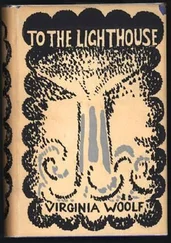"I knew that son of a bitch was a nark," Larue said.
"He'll be easy enough to manage. You see his shoes? They're falling apart. He wears the same trousers day after day. He's got a wife in St. Paul, she'll grow fond of what those few extra dollars each week will bring. I see new crockery in her kitchen cupboards, new dresses for church on Sunday. Maybe even a beaver-pelt coat."
"I was you, I'd tell him to keep the hell away from us. Strange things happen to the uninitiated up here at the Timber. There're lots of places to fall and break a leg, lots of hungry critters in the woods happy to make a snack of boys fallen down."
Hosea smiled. "So violent, man!"
"I don't want to see him. That's all I'm saying. I'll make things bad for him if I do."
"Once I've pocketed him, I'll pass your message along."
Odd liked this talk. He knew that Hosea would indeed pocket the fed and that a summer of running whiskey lay ahead. Enough money to outfit his boat and maybe make a run for it next spring. He and Rebekah gone forever.
"Odd, you want a whiskey? A gal?" Larue asked.
"No, thanks. I'll be on my way."
Hosea, speaking to Larue, said, "Don't worry, he isn't queer. Just principled."
" There were more principled men in this world, the Timber would be on the Lighthouse Road, we'd be selling whiskey on the boardwalk," Larue said.
Odd smiled. "There'd be no fun in that, though," he said.
Larue patted Odd's shoulder. " Point well taken, friend."
Odd took a few minutes to study the lounge, the women in their negligees or cheap dresses, their vacant eyes and slumped shoulders. Odd could not see the pleasure in any of it.

T hea learned first to tend the scullery fire, to warm water for the dish scrubbing, to make tea for the other cookees. She was up at four every morning, rekindling flames as she mouthed her silent prayers.
Between the stovewood and the kitchen sink carved from white pine, she had splinters enough that her hands looked like porcupines. But she was tireless and dispassionate and worked without complaint. Within two weeks of her arrival at the camp she was paring potatoes and rutabagas and opening tins of milk. Before Thanksgiving she could soak the beans and boil cabbage. Now, in the new year, she was in charge of baking: biscuits and rye bread and larrigan pies. She could slice the loaves and ready the pea soup before the other cookees could set the tables and replenish the woodpile.
Because he could not speak Norwegian the camp cook taught her by demonstrating, speaking only in rudimentary terms fit for a child or simpleton. In this way she came to know the language of the kitchen as a series of words in isolation, nouns and verbs independent of each other. Herring, oleo, roux, apple, mutton, cellar, sowbelly, stove. And clean, stew, stir, cut, serve. Though he was terse and strict, she knew that she pleased him, and not for the reasons she pleased the hundred other men in camp. In the cook's estimation, her diligence and subordination would have been enough. What came after that was gravy. As for Thea, she understood his authority instinctually, and though she had no great opinion of the man, he was at least not mysterious.
Those others in the kitchen were entirely more beguiling. There was Abigail Sterle, whose croupy hosannas sung into the enormous vats of sowbelly stew were the only evidence of any voice at all. She bunked and worked beside Thea while keeping her stare in a permanent study of the shanty floor. They made the only pair of women in camp. For this reason alone Thea withstood the elder's coldness, and after washing the morning dishes the two would sit on either side of the cook stove sipping tea sweetened with pilfered sugar.
During these quiet, stolen moments, the brothers Meltmen— the other cookees in camp — would sometimes join the women. They were fine-haired and lean and their skin was so pale as to appear poached. Another shade paler and they might have been albinos. Like Abigail Sterle, they were pious and humorless. But unlike the crone, they were sixteen years old and possessed the vigor of boys their age. It would have been easy for Thea to shrink under their unabashed ogling and sniggering. But she didn't. Her life was difficult enough without the Meltmen boys' attention.
Only when the codger bull cook passed through did Thea feel any sense of curiosity. If that was what she felt. She would never know his name, that old man so timeworn by his life in the wilderness. The whole liquid part of his eye — sclera, iris, pupil— was white as pearl and set deep in his wizened face. He might have been blind but for how he stepped around camp with complete sovereignty, less a cook than a bull. His position among the men puzzled Thea. One moment she'd see him hauling water up from the river, the yoke over his shoulders an ungodly cross for a man his age, and the next he'd be in private consul tation with the camp foreman. He would feed the horses, brand the lumber, tend the wanigan while the clerk took his evening constitutional, even distribute the mail on occasion. But whatever his errand or task, every man in the camp regarded him with the utmost respect.
Her only reprieve from the kitchen crew came from the hundred ravenous jacks. For fifteen minutes three times a day they descended on the mess, arriving in single file and leaving the same way. They all looked the same at a glance, so she learned to identify them by their grotesqueries: the missing fingers or hands, the peg legs, the hunchbacks, the harelips, the sunken chests, the pruritus and scabies. It seemed as if each of the men possessed some defect or wound. They did not speak but greeted her with grunts or pleasant nods, depending on their age or mettle. Some were churls, some gentlemen, but most had about them a halo of resignation so heavy as to mask character of any sort. Their ambivalence followed them into the mess and weighed heavy on the mood. Silence was the rule of the mess hall. So despite the clattering of tinware and shuffling of boots, despite the sighs and audible yawns, their presence at chowtime only made the dumbness of her days more oppressive.
The quiet might have been tolerable were it not for the close quarters. When word had come to the camp foreman that he would have two women in his charge — he'd been alerted only days before the crew of sawyers and teamsters had reported at the end of October— he'd had to fashion their accommodations quickly. Trond Erlandson had worked the northwoods for years and could remember the camboose shanties of the seventies. Therefore, he saw no reason the men should need separate bunkhouses and mess halls. He likewise could not come to peace with the idea of two women toiling under his watch. Unless they were selling hospital tickets or accompanied by their proprietor husbands, women were to be unseen. That was his belief. As such, he put little effort into their billet, ordering the bull cook and two others to extend the root cellar behind the kitchen.
In a single rainy afternoon they dug a den not seven feet deep. They fortified the dirt walls with pine planks and built a roof of the same. They tarred the seams of the roof and hung a curtain between the cellar and their hovel. Against opposite walls they built bunks with no more thought than they gave the woodbox, which they stashed beside the potbelly stove. Above each bunk candle sconces were hung without the least consideration for where the paraffin might drip. A pewter pitcher and basin were set atop the stove, a barrel opposite the woodbox on the floor, and a pail without a handle intended to suffice as chamber pot was tucked behind the curtain. As dusk settled the rain gave way to drizzle and each of the three men carried a bale of hay from the stable to the new burrow. Having spread half of the hay on the floor, they padded the bunks with what remained. Finally, they stood back and considered their work. One of the jacks said, "I'd not unbutton my britches to make water here, but it'll do."
Читать дальше













